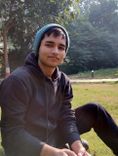For smooth Ad free experience
A Freedom fighter first and a Litterateur second, Daasarathi Krishnamacharyulu the man who freed Telangana, took birth on this day in 1925.
Born on 22nd July 1925
No authoritarian fantasy can be articulated without wrestling ideological control of the ones who are dominated; sanctioned use of force can never gain legitimacy without the tacit consent of the people. Any such project which cannot convince people of the necessity to be dominated cannot last for long.
Neo-Marxist scholar Antonio Gramsci in his famous Prison Notebooks outlined the importance of winning the metaphoric war of position and establishing one's hegemony; of getting the subservient to participate in their own servility. In the realm of ideological warfare, words are the strongest weapons and nobody knew this better than Daasarathi Krishnamacharyulu.
Daasarathi was born in a middle-class family of Warangal district's Chinnaguduru village.
His family members were devout Vaishnava bhakts and he too, followed in their footsteps. Daasarathi had a unique love for mythology and thusly, he learnt Tamil, Telugu and Sanskrit to master the Puranas.
His formative years were shaped by the polemical writings of Marx, which opened his eyes to the grief and anguish that enveloped the world around him. After completing his schooling at Khammam Government High School, he gave up his dreams of higher education to stand up to the Nizam of Hyderabad and his suffocating rule.
Daasarathi became a part of the Andhra Mahasabha Movement and volunteered to wander from one village to another to spread their political programme amongst the masses. Even though Mahatma Gandhi and Kandukuri Veeresalingam inspired him, his heart and his sympathies lay with the political left. His worldview was shaped by leftist thought and some of the people closest to him were leftist revolutionaries too.
The Nizam continued to rule as he did before independence and the State Congress led a civil disobedience movement against him. Daasarathi too was put behind the bars and he decided to work on inspiring revolution through his poems.
They weren't allowed to have pens, pencils or paper so he decided to find a workaround; he used to recite these poems to his friends, who would memorise the lines by heart and pen it down as soon as any of them was released.
Krishnamacharyulu completed his book and published it after being released in 1947 in the form of an anthology called Agnidhaara- a collection of fiery political poems that could fan the fire of liberation even in the deceased.
After Andhra was merged with Telangana in 1956, Daasarathi held government office for a few years before he moved to the job of a prompter till 1971 and as the government poet for the next 13 years. Daasarathi Krishnamacharyulu's legacy remains immortalised through the following lines-
“Edi Kakati? Evate Rudrama? Evaru Rayalu? Evadu Singana? Anni Nene! Anta Nene! Telugu Nene! Velugu Nene!” (‘Who are the rulers who ruled different places here? I’m everything! I’m myself Telugu, I’m Velugu!’)

You might be interested in reading more from
